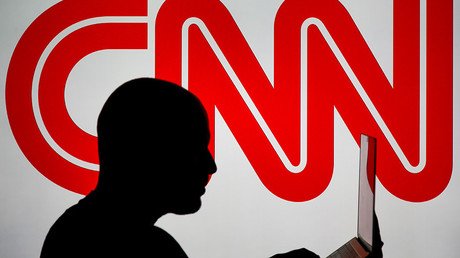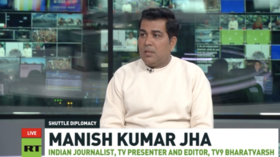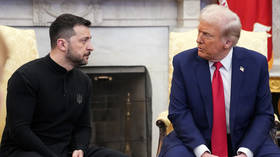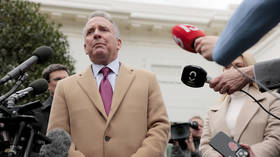DOJ sues to prevent AT&T-Time Warner merger
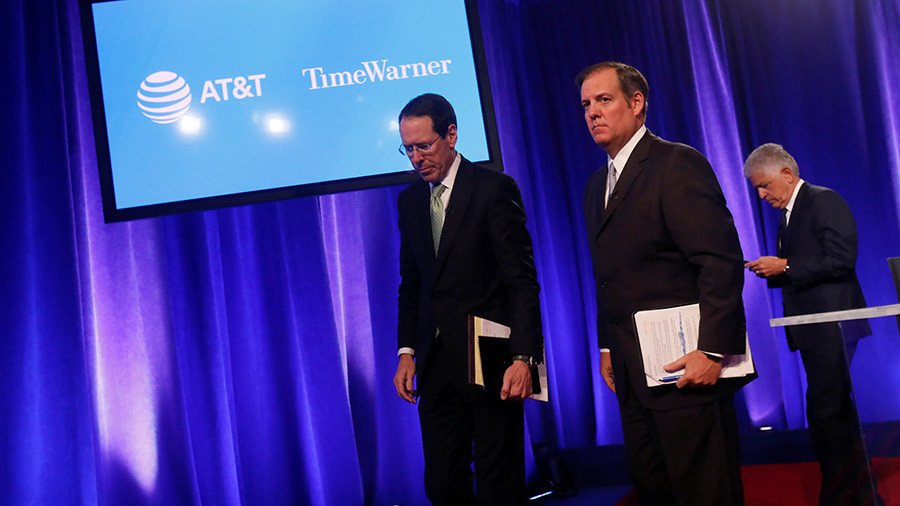
The Trump administration has filed a civil antitrust lawsuit to block AT&T from acquiring Time Warner for $85.4 billion, a deal that would give the largest world’s largest telecommunications company control of CNN.
The Justice Department announced Monday it will be challenging the AT&T-Time Warner merger, one of the largest mergers in American history, arguing the combined company would raise prices and stifle competition and innovation.
Makan Delrahim, the assistant attorney general for the DOJ’s antitrust division, said the potential merger would be illegal.
“AT&T/DirecTV’s combination with Time Warner is unlawful, and absent an adequate remedy that would fully prevent the harms this merger would cause, the only appropriate action for the Department of Justice is to seek an injunction from a federal judge blocking the entire transaction,” Delrahim said.
According to the complaint filed in the US District Court for the District of Columbia, the merger would give the combined company “a weapon to harm competition.”
“AT&T/DirecTV would hinder its rivals by forcing them to pay hundreds of millions of dollars more per year for Time Warner’s networks, and it would use its increased power to slow the industry’s transition to new and exciting video distribution models that provide greater choice for consumers.”
AT&T, the second largest wireless telephone company in the US, agreed to buy Time Warner, which owns HBO, CNN, Warner Brothers, DC Comics, TBS, TNT, the Cartoon Network and broadcast rights to many live sporting events, for $85.4 billion in October 2016.
The deal between Time Warner and AT&T is known as a “vertical merger,” which combines two companies that do not compete with each other. Since AT&T distributes content and Time Warner creates content, AT&T’s legal counsel David McAtee, said that the deal is totally legal and the lawsuit challenging the merger is “a radical and inexplicable departure from decades of antitrust precedent.”
“Vertical mergers like this one are routinely approved because they benefit consumers without removing any competitor from the market. We see no legitimate reason for our merger to be treated differently,” McAtee said in a statement after the lawsuit was filed.
However, many were quick to criticize the deal, including President Donald Trump, who made the merger a campaign issue during the election last year.
During the campaign, then-candidate Trump said that the merger between AT&T and Time Warner would put “too much concentration of power in the hands of too few.”
“Deals like this destroy democracy,” Trump said in October 2016.
Trump has had a long-standing feud with CNN over their coverage of him, and he has repeatedly called them out as “fake news.”
#Google facing antitrust lawsuit for removal of #Gab from app store https://t.co/avmOgsIbzb
— RT America (@RT_America) September 16, 2017
At a press conference Monday, AT&T CEO Randall Stevens was asked if the DOJ filed the lawsuit because of Trump’s animosity to CNN.
“There’s been a lot of reporting and speculation of whether this is all about CNN, and frankly, I don’t know,” Stevens said. “But nobody should be surprised that the question keeps coming up because we’ve witnessed such an abrupt change in the application of antitrust law here.”
Stevens said the company is not required to divest any assets from Time Warner or AT&T, adding that any agreement which would cause the company to give up control of CNN would be a “nonstarter.”
Stevens said that AT&T is ready to challenge the lawsuit in court.
“We have no intention of backing down from the government’s lawsuit,” Stevens said. “We are in this to win, and absent a reasonable compromise that doesn’t violate our principles, we expect to do just that.”
Daniel Petrocelli, the lead trial counsel for AT&T and Time Warner, said that the DOJ would have to prove the merger would harm competition and consumers to win the case, but he does not think that will happen.
“If there’s any proof there, I’m sure it will emerge and it probably won’t bode well for the government if it does,” Petrocelli said, referring to recent reports that Trump may have influenced the Justice Department’s review of the merger.
“Simply put, the theories in the DOJ’s complaint....have no proof and make no sense in the real business world and we are confident that the laws and the fact will prevail and this merger will be allowed to proceed,” Petrocelli said.
